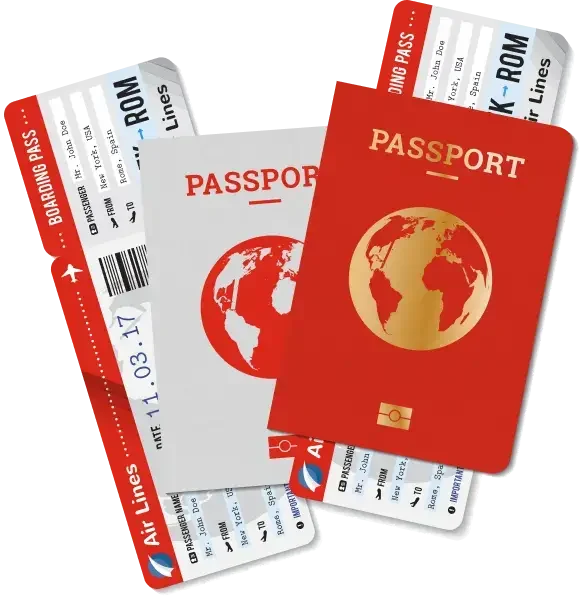Population
GDP (per capital)
Visa-Free Countries
GDP (purchasing power parity)
-
Immigration to Switzerland Through Investment
-
Switzerland has long been a magnet for investors, thanks to its robust economy, political neutrality, and exceptional quality of life. These attributes create an environment that fosters both financial security and personal well-being, making the country highly attractive to those seeking to establish themselves through investment. In 2025, interest in immigration via investment continues to rise, fueled by Switzerland’s reputation as a stable and prosperous destination. Navigating this path successfully requires a clear understanding of the specific investment options available and the evolving legal frameworks that govern residency. Being well-informed is essential to making sound decisions and ensuring a smooth transition into Swiss life.
- Main Industries
- Banking and Financial Services
- Machinery and Precision Instruments
- Pharmaceuticals and Life Sciences
- Tourism and Hospitality
- Insurance and Reinsurance Services
- Watchmaking and Luxury Goods
- Information and Communication Technology
- Food and Dairy Production

Bern
UTC+1
41,285 km2
Swiss franc (CHF)
German (official)
French (official), Italian (official), Romansh (official)

-
Overview of Swiss Investment Immigration Options
- Switzerland does not have a direct citizenship-by-investment program but offers residency through financial contributions. This approach attracts investors who bring economic value without straining social services.
-
Cantonal vs. Federal Roles:
While federal authorities set general policies, cantons control the implementation of residency permits, leading to some variation in requirements and procedures across regions.
-
Recent Policy Changes in 2025:
- Lump-Sum Taxation: Wealthy individuals may gain residency by paying a fixed annual tax, typically lower than regular income tax, available in select cantons.
- Business Investment: Non-EU investors can obtain residency by investing at least CHF 1 million in a Swiss business that creates jobs or boosts the local economy.
- Integration Requirements: Applicants must spend a significant portion of the year in Switzerland and respect local laws and culture.
- Knowing these pathways and their conditions is essential for those considering investment-based residency in Switzerland.

Main Investment Routes to Residency
Main Investment Routes to Residency
Switzerland offers several investment-based pathways to residency, each designed to attract individuals who can contribute economically. Below is an overview of the primary options available as of 2025.
Business Investment and Self-Employment
Entrepreneurs and investors can obtain Swiss residency by establishing or investing in a business that benefits the local economy.
Key Criteria:
- Minimum Investment: Typically, CHF 1 million.
- Economic Contribution: Must create jobs or stimulate economic activity.
- Cantonal Variations: Requirements and procedures can differ between cantons.
- Documentation: Business plan, proof of financial means, and evidence of economic impact.
- Timeline: Application processing can take several months.
- Fees: Application fees vary; legal and administrative costs may also apply.
Process:
Applicants must submit their business plan and financial documents to the cantonal authorities. Upon approval, they can apply for a residence permit, which typically allows them to live and work in Switzerland.
Real Estate Investment
Switzerland enforces the "Lex Koller" law, which restricts non-Swiss nationals from purchasing residential property unless they hold a valid Swiss residence permit (B or C) or are citizens of an EU/EFTA country. Even with such permits, the intended property must be used as a primary residence; investment or rental purposes are generally prohibited.
Special Cases and Exceptions
Certain cantons may have more lenient policies, allowing property purchases for secondary residences or commercial purposes. However, these exceptions are rare and subject to strict local regulations.Lump-Sum Taxation (For High Net-Worth Individuals)
Switzerland offers a lump-sum taxation system for wealthy foreign nationals who do not engage in gainful employment within the country. This system allows individuals to pay a fixed annual tax based on their living expenses rather than their global income.
Eligibility Requirements:
- Must be a foreign national without Swiss citizenship.
- First-time Swiss tax residency or after an absence of at least 10 years.
- No employment in Switzerland during the residency period.
Benefits and Obligations:
- Right to reside in Switzerland and travel within the Schengen Area.
- Access to high-quality healthcare and education.
- Obligation to reside in Switzerland for a minimum of 183 days per year.
- Annual lump-sum tax payments, which vary by canton and individual circumstances.
Recent Changes in 2025:
Several cantons, including Zurich and Basel-Stadt, have abolished the lump-sum taxation system due to concerns over fairness and tax revenue. However, it remains available in other cantons, with varying tax rates and conditions.Application Process and Requirements
Application Process and Requirements
Key Steps
Switzerland offers pathways to residency for investors, notably through lump-sum taxation or business investment. The application process involves several key steps:
- Preliminary Due Diligence: Conducted by certified professionals to assess the applicant's background and financial standing. This step helps identify potential issues early in the process. Typically takes one business day.
- Negotiation of Tax Agreement (for Lump-Sum Taxation): Engage with the chosen canton to negotiate the annual lump-sum tax amount. This agreement is based on factors like worldwide expenses and property holdings. The negotiation process usually spans 3–4 weeks.
- Submission of Residence Application: After securing the tax agreement, submit the residence application to the cantonal migration authority. This includes providing necessary documentation and undergoing a background check. Processing time varies by canton but generally ranges from 2 to 6 months.
- Issuance of Residence Permit: Upon approval, a B-type residence permit is granted, typically valid for one year and renewable annually. This permit allows the investor and their family to reside in Switzerland under the agreed conditions.
Required Documentation
- For Lump-Sum Taxation:
- Proof of financial means and worldwide expenses.
- Evidence of accommodation in Switzerland.
- Valid passport and health insurance coverage.
- Police clearance certificates.
- Completed application forms and declarations.
- For Business Investment:
- Detailed business plan outlining investment and job creation.
- Proof of investment amount and source of funds.
- Evidence of company registration and compliance with local laws.
- Personal identification documents and background checks.
Role of Authorities
- Cantonal Authorities: Responsible for assessing applications, negotiating tax agreements, and issuing residence permits.
- Federal Migration Office (SEM): Oversees the overall immigration framework and ensures compliance with national regulations.
Timeframes
- Preliminary Due Diligence: 1 business day.
- Tax Agreement Negotiation: 3–4 weeks.
- Application Processing: 2–6 months, depending on the canton.
- Permit Issuance: Upon approval, typically within a week.
It’s advisable to engage with legal and financial professionals experienced in Swiss immigration to navigate this process effectively.

-
Rights and Obligations of Investor Residents
- Investor residents typically receive a B permit (temporary residence) or, after several years, a C permit (permanent residence). The B permit is usually valid for one year and is renewable, while the C permit offers long-term residency benefits.
- Work and Business Rights: Under the lump-sum taxation scheme, investors are not permitted to engage in gainful employment within Switzerland. However, they may manage or invest in businesses abroad. For those establishing or investing in a Swiss company, active involvement in business operations is required, including job creation for Swiss citizens.
- Taxation and Financial Responsibilities: Investors under the lump-sum taxation regime pay an annual fixed tax based on their estimated living expenses, rather than on worldwide income or assets. This amount is negotiated with the cantonal tax authorities and typically ranges from CHF 250,000 to CHF 1 million, depending on the canton and family circumstances. Social security contributions are also mandatory.
- Renewal and Permanent Residency Eligibility: To maintain residency, investors must reside in Switzerland for at least 183 days per year. After 10 years of continuous residence, they may be eligible to apply for Swiss citizenship, subject to fulfilling integration requirements.
Challenges and Considerations
While Switzerland offers attractive opportunities for investors seeking residency, the path is not without its difficulties. Understanding the potential challenges ahead is essential to ensure a successful and smooth immigration process. Below are some key considerations to keep in mind.
Legal and Bureaucratic Hurdles:
Navigating Switzerland’s residency application process can be complex. Each canton has its own requirements and procedures, leading to potential inconsistencies and delays. Additionally, the Swiss immigration system is discretionary; having the financial means does not guarantee approval. Applications may be rejected if the perceived economic benefit or fiscal contribution seems insufficient.
Investment Risks and Business Viability:
Investors opting for the business investment route must ensure their ventures are economically viable and align with Swiss market demands. The Swiss government prioritizes investments that contribute to the local economy, such as job creation and innovation. Unsuccessful businesses may not only lead to financial losses but could also jeopardize residency status.
Importance of Professional Advice:
Given the complexities of Swiss immigration laws and tax regulations, seeking guidance from legal and financial professionals is crucial. Experts can provide tailored advice, assist in navigating cantonal differences, and help in presenting a compelling case to immigration authorities.
Cantonal Variations and Location Selection:
Switzerland’s 26 cantons have varying policies and requirements for residency by investment. For instance, while some cantons may offer more favorable tax agreements, others may have stricter criteria. It’s essential to research and choose a canton that aligns with one’s financial situation and personal preferences.
-
Recent 2025 Updates and Trends
- The landscape of investment immigration in Switzerland continues to evolve in 2025. New policies and global influences are shaping how foreign investors approach residency opportunities.
- Cantonal Policies and Incentives: Several cantons have introduced new incentives to attract investors, including reduced lump-sum tax rates and faster permit processing. However, these benefits vary by canton, making it essential to choose the right location based on individual goals and criteria.
- Global Economic Shifts and Regulatory Changes: Switzerland remains a stable destination, but increased scrutiny on investments means authorities prioritize economic contributions like job creation and innovation. Changes in tax and financial regulations also affect investor planning.
- Post-Pandemic Immigration Framework and EU Relations: In response to the pandemic, Switzerland is updating its immigration policies and negotiating new agreements with the EU. These changes may impact immigration control measures and affect investment immigration stability in the near future.

Conclusion
Switzerland remains a highly attractive destination for investors seeking residency, thanks to its stable economy, political neutrality, and exceptional quality of life. While the pathways to immigration through investment are carefully regulated and vary across cantons, staying informed about the latest 2025 updates is crucial. By understanding the legal requirements and potential challenges, investors can make well-informed decisions and take full advantage of the opportunities Switzerland offers.FAQ about Immigration to Switzerland Through Investment (2025 Updates)
Does Switzerland offer a direct citizenship-by-investment program?
No, Switzerland does not have a direct citizenship-by-investment scheme. Instead, it provides residency permits through various investment routes, with citizenship possible only after fulfilling long-term residency and integration requirements.
What types of investment can lead to residency in Switzerland?
Investors can obtain residency mainly through business investments, self-employment, and lump-sum taxation agreements. Real estate investments alone rarely qualify for residency due to strict regulations.
How long does the investment immigration process usually take?
The timeline varies by canton and the investment type but generally ranges from a few months to over a year, depending on documentation completeness and cantonal procedures.
Are there differences in investment requirements across Swiss cantons?
Yes, each canton has its own rules regarding minimum investment amounts, economic contribution expectations, and application procedures, so choosing the right canton is vital.
Looking for expert visa support?
PROGRAM MATCH
Compare the different programs in a nutshell and discover their features
PROGRAM COST
Check the cost estimates for each offered program
PROGRAM MAP
Explore the power of global mobility for every passport in the world
